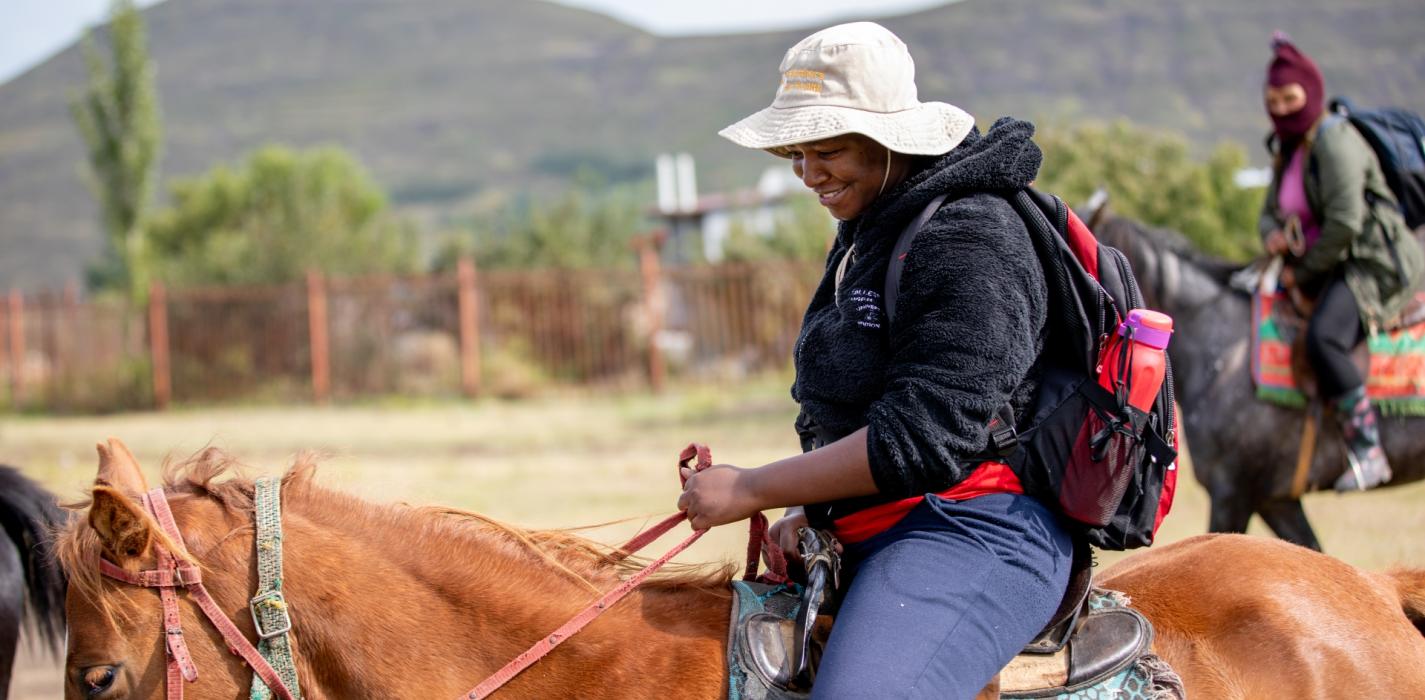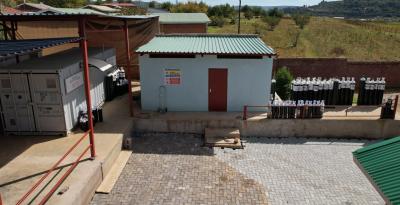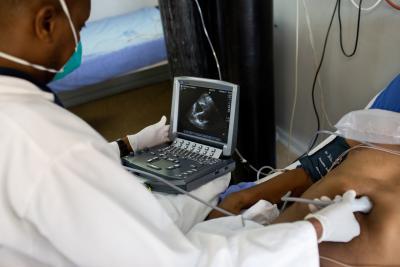About Us

For over 18 years, PIH Lesotho has supported the country’s government by providing health services and strengthening the health system.
PIH areas of interventions are:
- Primary Health Care (PHC) in seven hard-to-reach clinics including Manamaneng, Bobete and Methalaneng in Thaba Tseka district, Nohana and Nkau in Mohale’s Hoek district, Lebakeng in Qacha’s Nek district, and Tlhanyaku in Mokhotlong district.
- Multi Drug Resistant Tuberculosis (MDR-TB) treatment and care in the entire country.
- Health system strengthening in Berea, Leribe, Butha Buthe and Mohale’s Hoek districts
- Technical assistance to the Ministry of Health on policy, strategy, and guidelines development
- Oxygen ecosystem support and biomedical equipment maintenance
- Mental health care and technical support.
- Emergency and Critical Care
- Oncology (lab and imagery investigations)
“We have made great strides in improving quality of care for our patients through strengthening our human resource capacity, equipping our supported facilities with new medical technologies and diagnostic tools, training our staff on these new tools, and partnering with institutions such as Dana Farber and University of Pennsylvania to advance our mission of supporting the Ministry of Health of Lesotho to raise the standard of care.”
Enhancing Health Infrastructure
Partners In Health Lesotho has prioritized enhancing health infrastructure to enhance access to quality maternal and child health services, implementing new systems like TB hunter to address poor case finding in hard-to-reach areas and Open Boxes to improve procurement and supply chain systems.
We have continued to implement comprehensive primary health care services in our rural supported health centers and supported the Ministry of Health in its various health system strengthening initiatives. This includes logistic support to the District Management Teams for supportive supervisions and mentorship of frontline health care workers, integration of mental health services in the primary health services, provision of social support to pregnant women admitted in different maternal waiting homes, and production and distribution of medical oxygen to over 20 health facilities across the country.

Oxygen PSA plant at Botsabelo Hospital in Maseru, Lesotho
High Quality Treatment and Care
We have continued to provide high quality treatment and care for Drug Resistant TB, both in the acute setting at Botšabelo Hospital and at the community level with our community health team. We have successfully managed complex cases of DR TB in the hospital and supported the Ministry of Health to prepare an effective decentralization of DR TB treatment and care in the districts using lessons learned from Botšabelo MDR TB hospital.

Dr. Ninza Sheyo examining MDR-TB patient at Botšabelo Hospital.
Expanding Opportunities
Our partnership and support to the government of Lesotho has been expanded to include training the next generation of health professionals and leaders.
In line with our OnePIH theory of change, we helped expand opportunities for the next generation of Basotho health care providers by signing a Memorandum of Understanding (MOU) with the government of Lesotho through the Ministry of Health to provide training at PIH’s university in Rwanda - the University of Global HealthEquity (UGHE). Three new Basotho students have been admitted in the dual degree Bachelor of Medicine, Bachelor of Surgery/Master in Global Health Delivery (MBBS/MGD) program, a 6.5 years program at the University of Global Health Equity (UGHE) in Rwanda, are receiving full scholarship.
Our Mission
Our mission is to provide a preferential option for the poor in health care. By establishing long-term relationships with sister organizations based in settings of poverty, we strive to achieve two overarching goals: To bring the benefits of modern medical science to those most in need of them and to serve as an antidote to despair.
We draw on the resources of the world’s leading medical and academic institutions and on the lived experience of the world’s poorest and sickest communities. At its root, our mission is both medical and moral. It is based on solidarity, rather than charity alone.
When our patients are ill and have no access to care, our team of health professionals, scholars, and activists will do whatever it takes to make them well - just as we would do if a member of our own families or we ourselves were ill.